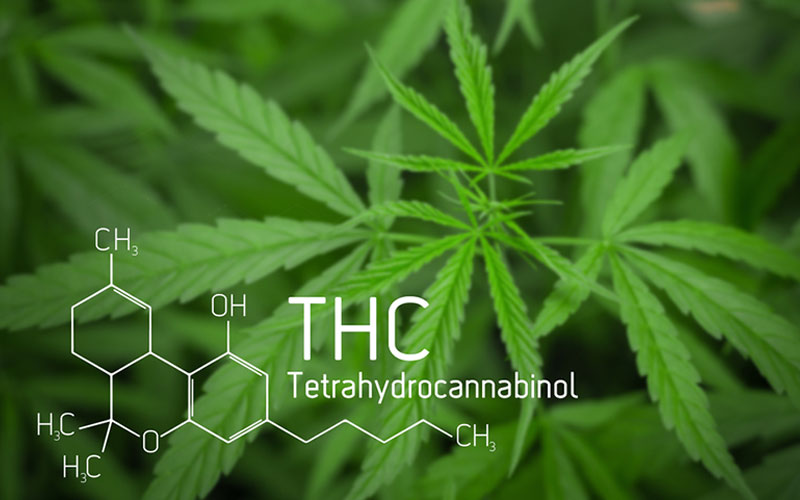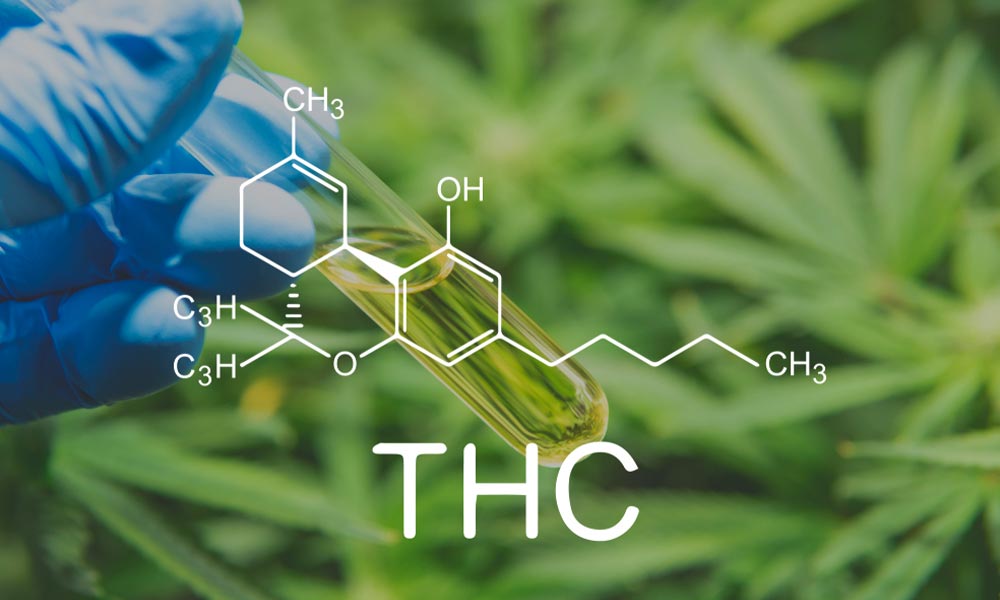
Recently, we’ve seen a rise in the number of THC products available in the market. THC is the primary psychoactive compound in hemp. It’s responsible for giving its users a euphoric feeling. Today, we’ll quickly look at the various types of THC in the hemp plant.
Despite how popular THC is, most users do not know there are various types. Like CBD, THC is one of the many cannabinoids in the hemp plant. People use it for various commercial, health, and recreational purposes.
Over the years, we’ve seen different THC-based products, such as gummies, topicals, oils, and tinctures. So far, delta-9 THC has been the most popular option among customers. But are there other types of THC available? What’s the legality of THC? How do you know which one is best for you?
We will answer all these questions and more below in this guide.
What Does THC Stand for?
What is THC, you may ask? THC is short for tetrahydrocannabinol. It’s the psychoactive cannabinoid found in hemp and cannabis sativa plants. Thus far, there are more than a hundred known cannabinoids, some well researched than others. THC is one of the well-known cannabinoids, and there are different types of THC, each with its unique effects.
How THC is Extracted
As mentioned earlier, over a hundred cannabinoids are present in hemp plants. However, the two most popular and well-studied ones are CBD and THC. Comparing CBD vs THC, THC has intoxicating effects, while CBD is non-intoxicating.
The manufacturer carefully extracts the cannabinoids from hemp via the highly efficient carbon dioxide (CO2) method. The CO2 extraction method is currently the industry-preferred process for extracting cannabinoids. But there are other methods, such as solvent extraction. Successful production of THC products ensures the careful extraction and preservation of THC, terpenes, and other cannabinoids from hemp plants.
The hemp plant contains THC in its acidic form, THCA. THCA is the most abundant non-psychoactive compound in hemp. When creating a THC product, the manufacturer heats the hemp material. This heating process, called decarboxylation, turns the acidic cannabinoid into its active form. Decarboxylation allows THC to interact actively with our body’s endocannabinoid system (ECS).
After extracting the THC, the manufacturer can infuse or add it into a range of products. We have various THC-infused products, from THC oils and tinctures to THC gummies and topicals.
Different Types of THC
THC is a cannabinoid with many variations. We have different types of THC, and they are referred to as chemical analogs. Each type has its own effects and varies slightly from the other.
THC binds with the CB1 and CB2 receptors of the endocannabinoid system (ECS). This system consists of cannabinoid receptors – CB1 and CB2, enzymes, and endocannabinoids. Also, it functions primarily to maintain homeostasis, a state of balance in the body.
Endocannabinoids are cannabinoids that our bodies produce. Cannabinoids, like THC, have a similar molecular structure to the body’s endocannabinoids. That is why THC can bind with the cannabinoid receptors in the ECS.

Delta 8
Delta 8 is one of the many types of THC that exist. It’s a double-bond isomer of delta 9 THC. You may be wondering, what does an isomer mean?
Isomers are compounds that contain the same number of atoms but differ structurally. That means delta 8 and delta 9 have a similar number of atoms. However, they differ from one another in the arrangement of these atoms.
So, does delta 8 THC get you high? Delta 8 binds with CB1 and CB2 receptors. However, it’s not as potent as delta 9. Delta 8 has psychoactive effects similar to delta 9. The effects of delta 8 are milder when compared to that of delta 9 THC.
Moreover, hemp-derived delta 8 is legal on a federal level following the passing of the 2018 Farm Bill. Anyone who wants a THC that doesn’t cause an extreme high can choose delta 8 THC products.
Delta 9
Delta 9 is the widely known type of THC in the industry. Whenever someone talks about THC, it’s considered as delta 9 THC. It’s the psychoactive variant of THC that people speak about whenever they refer to THC. Delta 9 binds with the CB1 receptors in the ECS. This interaction impacts different bodily activities, such as the functioning of the nervous system, which affects our sensory experiences.
Delta 9 causes a euphoric high because it has a ninth carbon atom with a double bond. It easily binds to the CB1 receptors in the ECS and gives the consumer a greater euphoric effect. In the United States, hemp-derived products can contain no more than 0.3 percent of delta 9 THC, according to federal law. But, the allowed THC concentration from marijuana products varies from state to state.
Delta 10
When you compare the effects from delta 8, delta 9, and delta 10, you will notice that delta 10 produces the least euphoric effects. It’s one of the mildest types of THC. However, it still has properties that can give the user the THC buzz.
The presence of delta 10 THC is almost negligible in hemp plants. You often find it made in laboratories. Delta 10 THC is a new type of THC. Because it’s one of the emerging cannabinoids, its usage in the industry is low.
THCA
This variant is the acidic precursor to THC, and it exists in the flowers, stems, and leaves of the cannabis plant. THCA is a type of THC that doesn’t cause any mind-altering effects like delta 9 and delta 8.
THCA doesn’t alter mental functioning because it does not interact much with the cannabinoid receptors in the ECS. What it means is that THCA cannot bind to the ECS receptors in the same way as delta 8 or delta 9. Therefore, it doesn’t bring about any psychoactive effects on the body.
Heating THCA makes it go from an acidic form to its natural state. That way, it can easily bind with the cannabinoid receptors in the ECS. This process of heating THCA, called decarboxylation, produces delta 8 THC, delta 9 THC, and THCV.
THCV
THCV, or tetrahydrocannabivarin, is also one of the many types of THC. It’s one of the variants that don’t lead to any buzzing effects in the user’s mind or body. However, higher doses of THCV can cause a stimulating high.
THCV is a product of the decarboxylation of THCA. The acceptance and usage of THC are still low. However, this compound is gradually becoming popular among enthusiasts.
THCP
THCP, or tetrahydrocannabiphorol, is an emerging cannabinoid in the THC field. One of the impressive properties of this compound is its binding ability with the CB1 receptors in the ECS. It’s said that THCP binds with CB1 receptors in a better way than the popular delta 9 THC. This unique variant is believed to have 33 times the binding affinity for CB1 receptors compared to delta 9. What this means is that THCP produces an intense euphoric effect. Also, its potency is higher than that of delta 9 THC.
The size of a compound’s side chains influences its ability to bind with the receptors. Although THCP is structurally similar to THC, it has a seven-link side chain. Before THCP, no other known cannabinoid had more than a five-link side chain.
How to Know Which Type of THC is Best for You?
The hemp plant has low levels of THC. However, marijuana contains a high amount of THC. Per federal law, you can use hemp-derived products with a limit of 0.3 percent THC. However, the law differs from one state to another if your THC is from marijuana.
Since the law varies, the first way to know which type of THC is best for you is to research your state laws. You should know whether or not your state allows its citizens to use THC.
That said, always know that the golden rule when using cannabinoid products is to start low. As a beginner, start with products that have low concentrations of THC. Slowly add them into your routine instead of jumping straight to high levels of THC. There are hundreds of products and brands in the CBD industry to explore when you begin your THC journey.
THC and Legality
According to the 2018 Farm Bill, only hemp-based products with no more than 0.3 percent THC are legal federally. THCP, THCV, and delta 8 THC are legal when from hemp. Delta 9 THC from marijuana is illegal federally. However, some states allow its use for medical and recreational purposes. The best way to learn about the legality of THC is by researching your state’s laws.
Final Thoughts
Delta 8 and delta 9 THC are more common variants of THC. However, THCV and THCP are slowly gaining ground in the THC space.
When buying THC products, it’s always best to read up on the brand and its processes. You want to find out how they source their THC and the variant the brand uses in its products.
It’s typical for companies to source high-quality THC from hemp plants. That way, their products will fall within the federal policy of 0.3 percent THC. However, you still need to check for yourself before making any purchases. The USDA doesn’t regulate these products, so a double-check is always essential.
Also, THC laws vary from state to state. So, you always want to be clear on what’s obtainable in your state. After that, you can decide what type of THC to choose for your needs.
